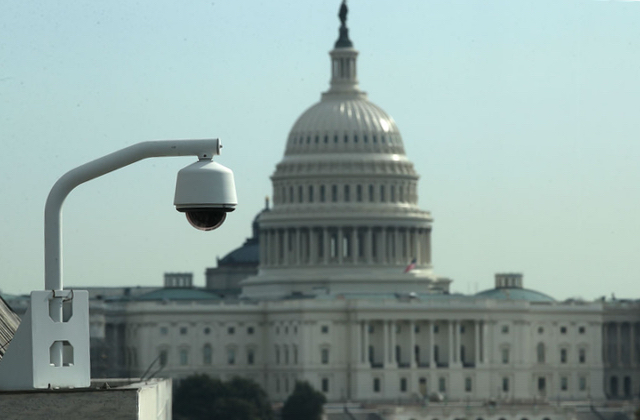In October 2017, Foreign Policy discovered that the Federal Bureau of Investigation’s (FBI) counterterrorism division had dreamed up a name for people who fight for Black liberation: Black Identity Extremists (BIE). The agency’s report on this so-called group says that, “BIEs have historically justified and perpetuated violence against law enforcement.”
Now, documents obtained by Color of Change and the Center for Constitutional Rights via Freedom of Information Act (FOIA) requests show that the agency’s intelligence collection on Black activists goes far beyond what was suspected.
From a briefing guide on the collected documents:
Color of Change (COC), the Center for Constitutional Rights (CCR), and the Kramer Law Clinic are currently litigating under the Freedom of Information Act (FOIA) to uncover how the FBI and Department of Homeland Security (DHS) are monitoring and surveilling public protests regarding police violence, racial justice and the Movement for Black Lives. Between May and December of 2017, DHS and the FBI turned over hundreds of pages of emails, reports, policies and surveillance documents to us.
While many of these documents were fully or partially redacted, it is clear from their substance that the FBI and DHS (including their sub-agencies) are surveilling the Movement for Black Lives, and Black activists and organizers, reinforcing a law enforcement narrative that broadly criminalizes Black protestors.
The documents were obtained via a lawsuit filed against the Department of Homeland Security and the FBI back in October 2016. Among them was a completely blacked-out, nine-page document that agency correspondence referred to as the “Race Paper.”
From a briefing guide on the Race Paper:
The DHS Office of Intelligence and Analysis (I&A) produced several emails sent in early 2017 between their personnel concerning a document they referred to as “the Race Paper.” Each email attached a separate version of the document, and some emails contain some feedback from DHS personnel on the structure of the document, call for in-person meetings to discuss the paper, and expressly mention “drivers” and “indicators.”
All versions of the “Race Paper” itself were produced to us, but in completely redacted form—nothing, not even the official title of the document, is visible. DHS claims the document is exempt from release to the public under certain statutes. Considering the documents are all fully black[ed] out, we are thus left to speculate, as to why DHS would prepare a document it refers to only as “the Race Paper” and then closely guard its contents, even to the point of concealing its actual title and a basic description.
The plaintiffs in the suit filed a motion for a summary judgement yesterday (March 19), asking the court to compel DHS to release the full contents of the document.
“Black communities know all too well how poisonous this kind of surveillance and intimidation is for social justice movements. During the civil rights era, agents with the FBI’s COINTELPRO program vigorously sought to discredit and destroy Black leaders and movements while they did nothing to address the injustices our communities were protesting. We can’t allow the FBI to essentially operationalize COINTELPRO for the twenty-first century without a fight," Rashad Robinson, executive director of Color of Change said in a statement. “Up until recently, we’ve known very little about the government’s surveillance of our communities. But, by forcing the disclosure of more information about these surveillance efforts, including our demand today for the full and unredacted ‘Race Paper,’ we can better understand these attacks on Black activism and fight to prevent a new generation of Black activists from demonization, incarceration, intimidation and punishment.”
A previously released set of documents exposed a wide divide between how the federal government categorized Black protestors and admitted members of White supremacist groups. From the statement: “The documents were in stark contrast with the agencies’ communications regarding White supremacist groups, whom they deemed as engaging in ‘lawful’ protest activity.”
“The FBI and Department of Homeland Security are at war with Black activists,” Robinson said. “The documents we’ve forced the federal government to release expose how these agencies are demonizing and intimidating Black activists—people who are rightly demanding that our country be more just—through coordinated and systemic surveillance.”
